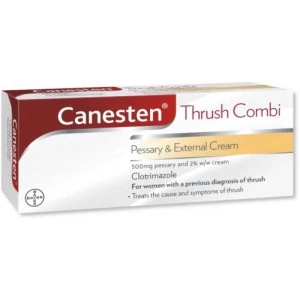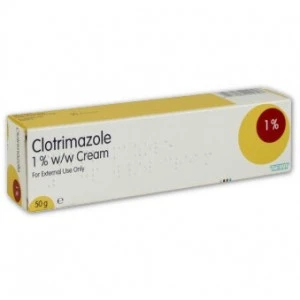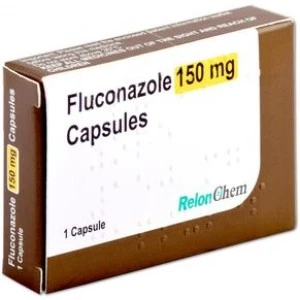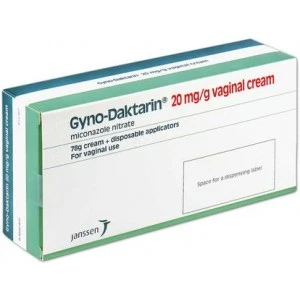Thrush
Thrush (candidiasis) is a common fungal infection which can affect both men and women. The infection is usually treated with an antifungal cream, tablet, or a combination of antifungal medications.
Oral thrush Ringworm and jock itch Athlete's foot Fungal Nail infections
Canesten Combi
- Treats infection directly
- Soothes external symptoms
- Available to purchase from our UK-registered pharmacy
Clotrimazole
- Treats a range of fungal infections
- Short course of treatment
- Eligible for next-day delivery
Fluconazole
- Taken once a day
- Kills fungal cells
- Treats several fungal infections
Gyno-daktarin
- Kills fungus
- Includes applicator
- Dispatched from a UK-registered pharmacy
Nystatin
- Easy administration
- Treats oral thrush quickly
- Available from UK pharmacy
What is Thrush?
Thrush (candidiasis) is a contagious yeast infection which commonly affects the mouth and genitals of both men and women, but can also affect the skin and nails.
Infection occurs after an exponential growth of a natural fungus in the body known as Candida. This yeast is usually kept in check by other bacteria in the body. In some cases, the body fails to regulate the growth of this fungus in the body, allowing the yeast to grow exponentially.
If left untreated, a thrush infection can spread into the bloodstream, affecting joints and potentially causing arthritis.
Oral thrush can interfere with the absorption of nutrients and the taking of medicine, as it can cause painful white lumps in areas of the mouth, such as the tongue, cheeks and the back of the throat.
Depending on the area affected by thrush, several treatments are available.
A range of treatments can be used to treat thrush, depending on the location and severity of the infection.
Symptoms of Thrush
Thrush can cause some unpleasant symptoms. The most notable is a white penile or vaginal discharge akin to cottage cheese - which may be odourless in women but not men. Irritation and pain are common symptoms at the sight of the infection, which can make urination and intercourse particularly painful.
When areas such as the groin, armpit and between the fingers are affected, the infection causes a red, itchy, scaly rash and a white or yellow discharge.
Causes of Thrush
The infection is caused by a fungus known as Candida, commonly found in the human body. An infection of thrush occurs during the rapid growth of this fungus, which off-balances the natural levels of bacteria.
Possible causes of Thrush include:
- Damaged or irritated skin
- Menopause
- Oral contraceptives
- Pregnancy
- Treatment with antibiotics
- Uncontrolled diabetes
- Weak immune system (due to diabetes, HIV or chemotherapy)
While Thrush is not classed as an STI, sexual intercourse can cause a bout of thrush and transmit the infection to other people. If you have a penile or vaginal thrush infection, passing it back and forth between you both is possible.
While treating a thrush infection, you should avoid sexual intercourse until the infection has been cleared. The use of condoms during sex can reduce the risk of developing or passing thrush on to your partner.
How can I prevent Thrush?
Depending on the cause of your thrush infection, there are preventive methods which you can take to mitigate or minimise the risk of infection.
- Avoid sex while infected.
- Avoid tight underwear.
- Avoid using douches and perfumed products around your genitals.
- Take a shower instead of a bath.
- Use water and emollients to clean your genitals.
- Wear breathable cotton underwear.
- Wear condoms during sex to prevent the infection from spreading.
Buy Thrush Treatments Online
If you have experienced thrush before and know that what you are experiencing is a bout of thrush, you can buy thrush treatment online from Prescription Doctor. We offer a range of antifungal treatments for thrush, which you can buy online.
Antifungal treatments for thrush come in various forms, depending on the location and severity of the infection.
Forms of thrush treatments include:
- Cream for internal use
- Cream for external use
- Oral tablet
- Pessary tablet (which is inserted into the vagina)
Some thrush treatments combine these treatments to clear the infection effectively.
If you experience recurring thrush, you may need to keep taking treatment for up to 6 months. You should speak to your doctor to determine the cause of your thrush, such as periods or sex.
If you are suffering from thrush for the first time, see your GP to rule out the possibility of a sexually transmitted infection.
Additional resources
© 2013 - 2026 Al Muhsineen Limited. All Rights Reserved. Registered Pharmacy: 34 Halliwell Road, Bolton BL1 8RL. Registered Office: 254 First Floor, Shearbrow, Blackburn, England, BB1 8DS











